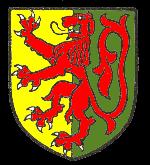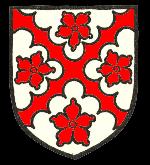Brache Manor Luton

Marshal coat of arms
Brache Manor was held of the main Luton Manor and had at one time, formed part of the Royal Manor of Luton. This main manor was held by William Marshal, Earl of Pembroke from 1214 to 1231 and he granted a yearly rent of twenty shillings from his mill at Brache to Saint Paul's Cathedral, London, in return for prayers for the soul of his late wife Alice de Béthune.
By 1282 lands at Brache were owned by the de Kendales who held them from the heirs of Joan de Mohun. Robert de Kendale died in 1330, leaving as heir his son, Edward who, in 1372, conveyed the manor to trustees. He died the next year and both his sons died without issue in 1375 and their sister Beatrice, wife of Sir Robert Turk, inherited the property. On Turk's death in 1400 his daughter by Beatrice, Joan, wife of John Waleys succeeded him in ownership of the manor. Her heir was her eldest daughter, another Beatrice, wife of Reginald Cockayne of Bury Hatley. On Cockayne's death Beatrice married William Milreth, alderman of London and on her death in 1448 Woodcroft Manor passed to her son John Cockayne who died in 1490.
Cockayne's widow Joan held the manor at her death in 1507 when Edmund Cockayne succeeded to the estate. In 1522 William Markham and Frances, his wife (Née Cockayne) conveyed the manor to John Markham. In 1531 the Manor of Brache appears for the first time in surviving records by that name, when it was held by William Markham as husband of Frances, daughter of William Cockayne. In 1576 Francis Markham settled the manor on George Rotherham and he still held the manor in 1595. In 1602 John Rotherham transferred Brache Manor to Robert Napier who held most of the medieval Manor of Luton into which Brache Manor was subsumed.

Napier coat of arms
In his History of Luton and Its Hamlets of 1928 William Austin noted that Brache Mill stood in Park Road, West Hyde. On a map in the book he shows The Brache as being in the area of Park Street roughly between Manor Road and Cutenhoe Road. The name means "land to be cleared by the plough".